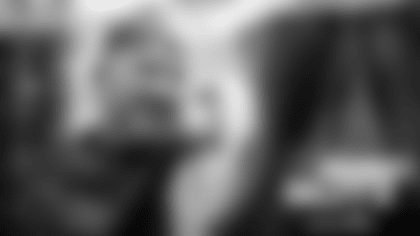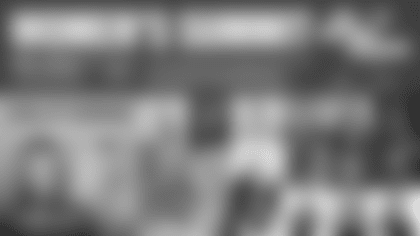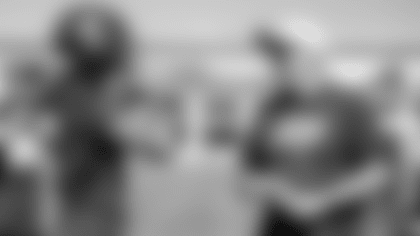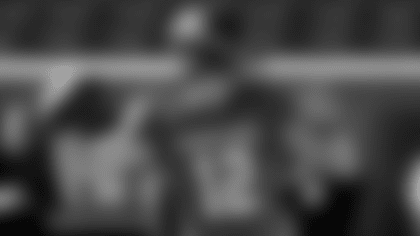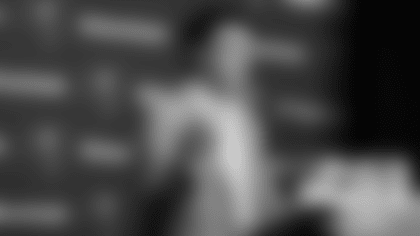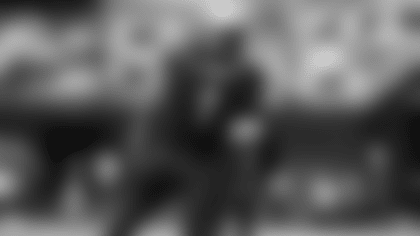A woman taps her foot anxiously as she sits on one of two wooden benches in a small, stale, white-washed room – the only decoration being a piece of printer paper taped to the wall that reads: NO TALKING IN COURT AUDIENCE. There's a window in front of her but the view isn't of the outside. Instead, it's of another room where a prosecutor, a judge and various court personnel sit. It's almost museum-like, with the court as the exhibit. Above that window is a video monitor showing live-looks inside two correctional facilities. Public defenders read off names and offenses in rapid succession from the screen, getting maybe a sentence or two in before the judge through the window decides just how much it's going to cost to get these offenders out on bond and therefore, out of a jail they've already been in for multiple days. This is despite the fact that not a single person has been formally charged with anything yet. And it's without actually ever stepping foot in front of a judge in-person, as offenders are just displayed as figures on the screen.
The monitor shows a young woman in a customary orange jumpsuit stand up as her name is called. The woman back on the bench in the stale room suddenly stops her foot tapping and stares intently at the screen. The public defender indicates to the judge there is someone present in the 'audience' for this particular offender before reading off multiple charges, including theft, and recommendations on bond to be set.
"Is that your daughter?"
It's a question not from the judge through the window, nor anyone in the offsite correctional facilities on-screen, but instead from next to the woman on the bench. There sits Buccaneers cornerback Mazzi Wilkins. The mother nods briefly to the young player before the judge motions for her to come speak with him directly. Multiple Buccaneers players occupying the rest of the bench space in the room watch through the window as the mother enters the courtroom to answer to the judge deciding her daughter's fate. The players are here as part of the Bucs' Social Justice Initiative, and along with Walter Payton Man of the Year winner Anquan Boldin and the Players Coalition, are at the Hillsborough County Courthouse to get a firsthand look at bail and probation hearings. These kinds of things are open to the public, by the way. The woman among them in the audience serves as a sobering example of the reality of this experience. Turns out, her daughter is just 18 years old. She gets good grades. She's on the basketball team at school. She fell in with the wrong crowd, her mother concedes, now face-to-face with the judge.
"I don't want my daughter to become a statistic."
The statistics of incarceration in the United States are staggering. The U.S. has the largest prison population in the world, along with the highest per-capita incarceration rate with 698 people per 100,000 in prison. The statistics of jailed persons are even more pronounced. Over 450,000 people are held nightly without conviction in this country. Right here in Florida, 65% of those in the Hillsborough County Jail are pending trial. They're in jail because they can't post their bail – a number almost arbitrarily set despite there being no evidence bail improves public safety (most of these are non-violent crimes) or that it increases the likelihood an offender will show up in court, per research presented by Jessica Brand, a lawyer from the Justice Collaborative, which works with the Players Coalition. In fact, some states have done away with monetary bail entirely given its questionable effectiveness.
In a voice that sounds more parental than judicial, the judge then rules to leave the girl's bond at the standard $2,000 for the first charge of theft but then ROR's or "Releases on One's Own Recognizance" for the rest of the charges, meaning no additional money will be required to release her. Her parents can pay the bond, so she won't be part of the jailed statistic any longer, provided she shows up for her court date. Many others the players see that morning, however, aren't so fortunate.
"You can see it's a real systemic problem," running back Dare Ogunbowale said. "I would say to an extent, it's almost not fair. Based on your income level, that's your ability to be free or not."

Down the hall in a much bigger courtroom, that's decorated for the upcoming Thanksgiving holiday, sit wide receivers Mike Evans and Chris Godwin with many more of their teammates. This is the more traditional setup you expect to see when you watch courtroom TV shows. And like those TV shows, judges have absolute power over their courtrooms in real life, too. The players are sitting in on probation hearings, where there is a little more context, but a whole lot more arguing, as the judge rules whether to send violators to jail or reinstate their probation. It's quick, too. And it may be a client's first time ever being face-to-face with the overworked public defender that is attempting to shield them from the judge's autonomy. Some have waited weeks in jail for their hearing - any progress they've made in getting their life on track while on probation surely wiped out; A father, who now works two jobs to support his wife and three kids, pleading to be reinstated after missing a meeting with his probation officer due to transportation issues. He was unemployed when he committed the offense he was on probation for but has since secured stable housing for his family and gained employment. If he goes to jail, what will they do without him? Or a woman that violated her probation after only two months who is now opting to wear an ankle bracelet for two years rather than serve 30 days in county jail, which would thereby satisfy her entire probation sentence. All because she can't leave her kids. Odds are after not making it two months, she won't make it two years without a violation. And a violation, no matter how trivial, would mean prison time. Upstate. Not cushy county jail.
"It's tough," Ogunbowale said. "First, you're going to empathize with the person. Obviously, they've committed a crime and you can't ignore that but at the same time, some of the punishments, you don't feel that they're properly being punished. That's kind of the frustrating thing about it. That's why a bunch of the guys that were here today will make sure we do things to hopefully change things like that in the future."
Change is slow and difficult, but Boldin and the Players Coalition have already been able to effect changes across the country. Boldin has had conversations with political officials in multiple states. A Pahokee-native, he's currently working on an effort to change bail policies in Orlando and has helped multiple communities in Florida. As one of the founders, Boldin started the Players Coalition with the mission to make an impact on social justice and racial equality at the federal, state and local levels through advocacy, awareness, education and allocation of resources. That mission starts with a platform not unlike the one Bucs players have.
"You're not just an ordinary Joe," Boldin told the players in a conversation session following their time in the courtroom. "When y'all speak, people listen. And when you voice your concerns and your opinions about things that aren't right – that's when things begin to change. It's amazing to me to see the response we get as athletes from people in positions of power, even the community."
"We do have a platform and we need to use that platform in whatever capacity that's going to be," Ogunbowale agrees. "Being in Tampa, guys going back to their respective cities too, we know that we have a platform that we can use our voices to try to change the system. Kind of just start small and work our way up from there. We definitely plan to use our voices."
The Buccaneers' Social Justice Initiative is a player-led effort to make a meaningful difference in the Tampa Bay community and support the larger, league-wide effort to address social justice issues. It's in place to help facilitate exactly what Ogunbowale said: helping players use their voices.
"It makes us feel good knowing that we have the backing of an organization that wants to see us do good in the community," he said.










